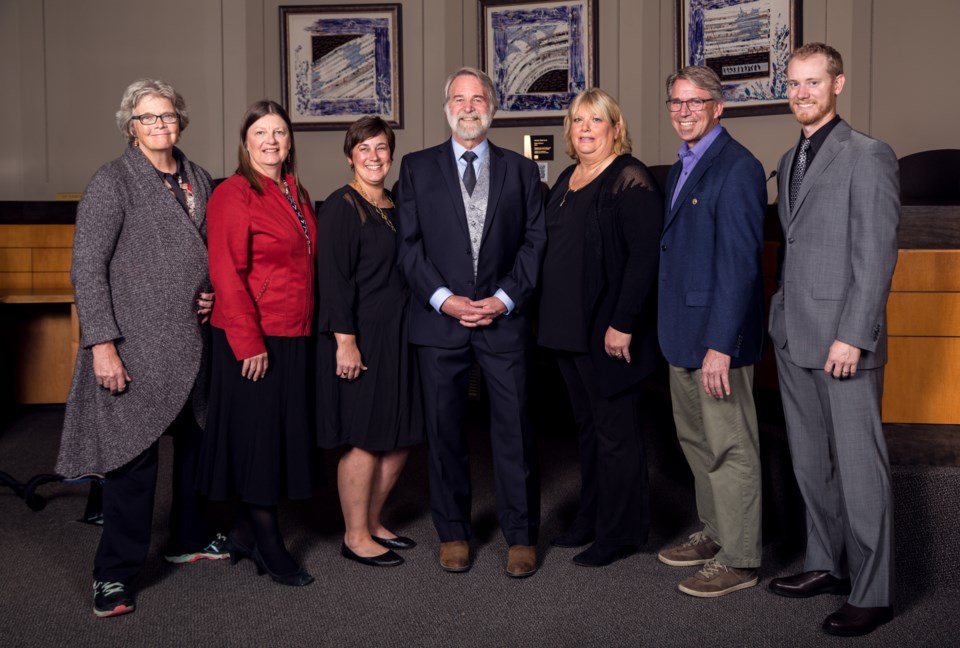CANMORE – Canmore’s elected officials have voted to keep municipal taxes at 2019 levels and will consider establishing an economic recovery task force and additional community supports next week.
A special meeting of council was held Wednesday (May 27) to provide council with an update on financial response to the COVID-19 pandemic.
Council was asked to use $1 million out of the tax stabilization reserve for social support programs ($355,000), business support programs ($281,000) and to cover the incremental costs related to COVID-19 ($300,000). However, the first two requests were postponed until next week’s council meeting, as well as a request from administration to establish an economic recovery task force.
Manager of finance Chelsey Richardson said the tax stabilization reserve has a current balance of $4 million, but recommended still maintaining a balance into the future.
“Our recommendation is that we fund our COVID- 19-related programs from this reserve, but maintain the remaining balance to address unknown future items,” Richardson said.
Administration estimates lost revenues until the end of July would total $2.76 million. Total reduced expenditures have also been estimated to be $2.76 million, including $1.26 million from layoffs and a hiring freeze. But in order to not raise taxes as council directed in April, administration said $1.2 million in additional savings from the capital budget is needed.
Administration recommended reducing the contribution to general capital and the asset replacement/rehabilitation reserve to achieve the reduced municipal tax rate, which was approved last year at a 4.8 per cent increase.
Chief Administrative Officer Lisa de Soto said while administration was originally looking at July as the timeframe municipal facilities could reopen, it is now clear it will take much longer to find the “new normal.”
“The COVID-19 pandemic is a marathon, not a sprint,” de Soto said. “There are many more unknowns than there are knowns for our future, so we face a future that is quite uncertain.
“But despite that uncertainty, we can foresee within administration and our business community a future when tourists come back and we are the bustling community we once were again.
“In preparing for that future, we want to set the context that deep cuts now will have long-term impacts to our ability to be ready to respond to these changing circumstances and the ability to maintain our service levels.”
Administration did not recommend council consider more wage or salary reductions for staff, or reduce budgets for affiliate organizations like the Canmore Public Library or artsPlace.
“It has become clear to me through many discussions, that given the depth of staff reductions to this point, further reductions would cut into essential services and business continuity,” said Mayor John Borrowman.
“While I know the residents of the town are looking to council to address this situation in a fiscally prudent way, I also know residents have a certain expectation of service delivery.”
When it comes to reopening facilities like Elevation Place or the Canmore Rec Centre, which represent the majority of lost revenue, de Soto said there will be additional costs due to enhanced cleaning protocols needed.
“We are seeing a significant increase to our costs as a result of responding to the pandemic,” she said.
General manager of corporate services Therese Rogers said the municipality is already a “lean organization” and additional cuts will affect service levels and are not sustainable in the long term.
“Managers and supervisors have worked very hard in the past few weeks to find savings in the operational and capital budgets,” Rogers said. “This exercise was extremely challenging and comes with service level impacts.”
One of the services reduced in the operating budget was for public washrooms. Due to staff layoffs and reduced services, currently washrooms at Centennial Park, Millennium Park, Elk Run Park, Lions Park and the Opera House are closed.
Administration said opening them requires a higher level of cleaning due to COVID-19, which would cost $170,000.
Coun. Vi Sandford put forward a successful motion to use the tax stabilization fund to keep those washrooms open. She said outdoor recreation is going to increase given the circumstances and the municipality needs to provide the appropriate facilities.
“Choices are limited in the community and as long as our indoor facilities remain closed, people will be looking for other places to recreate and I think we should provide those services for them,” Sandford said.
In order to reach the $1.2 million savings to reduce municipal property taxes to 2019 levels, council scaled back a number of capital projects.
Borrowman put forward a successful motion to reduce the budgets of the street rehabilitation for Railway Avenue by $600,000, the town centre enhancement plan by $157,000, a project to look at affordable housing land and policies by $100,000, the Land Use Bylaw update by $80,000, visitor accommodation review by $48,000 and a fleet replacement vehicle by $110,000. A motion from Coun. Joanna McCallum successfully reduced the budget for solar panels at the Roundhouse by $130,000 to reach the $1.2 million needed.
Council chose to postpone consideration of a pandemic response budget from community social development, and establishing an economic recovery task force until June 2.




